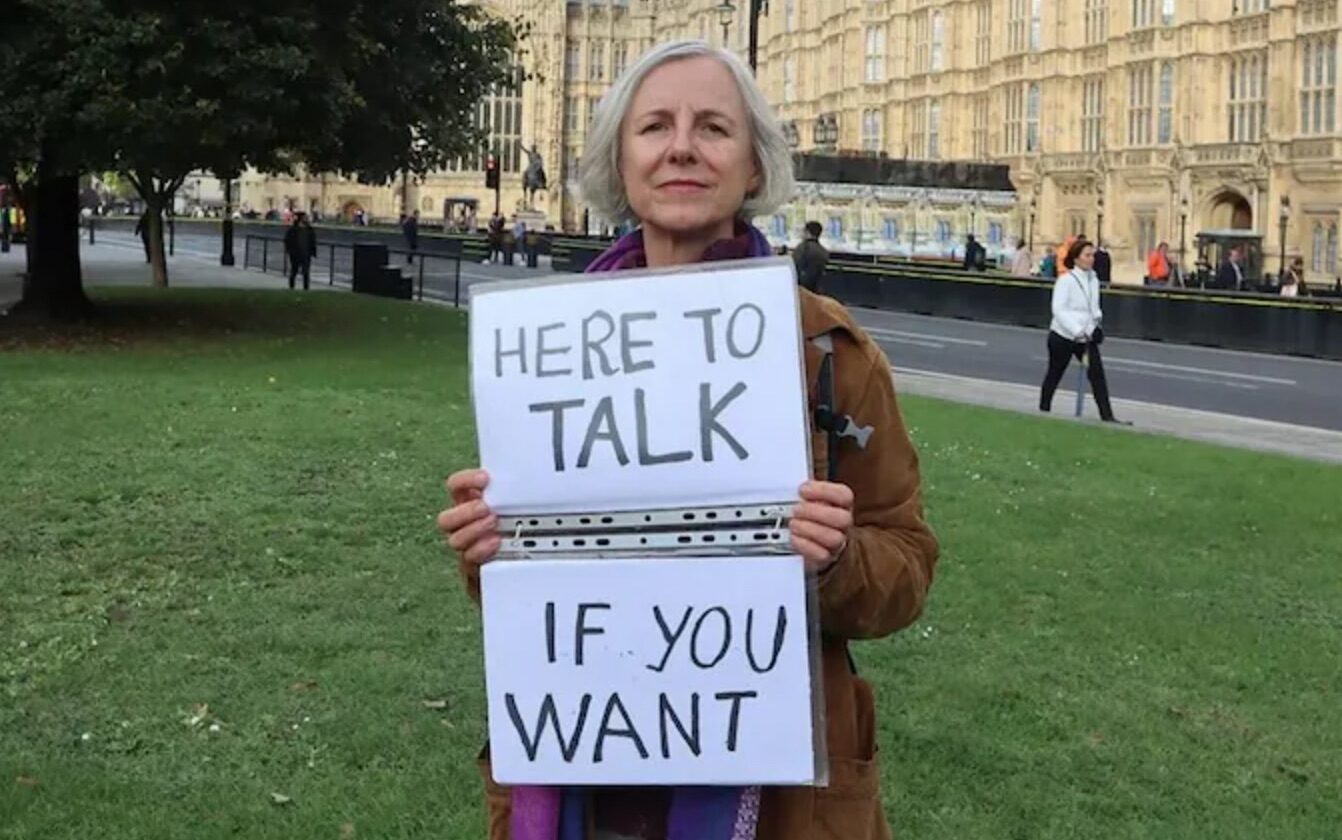Does anyone have the right to feel harassed by a sign that says “here to talk if you want to”? When 40 Days for Life campaigner Livia Tossici-Bolt held up her sign while standing opposite an abortion clinic two years ago, she certainly wished to make a point. But it’s unlikely that she realised just how far things would go.
Tossici-Bolt now faces prosecution for breaching the required protection zones around abortion clinics, which were brought in to prevent the harassment of women on their way to procedures. More than that, her case has now been picked up by the US State Department, which has issued a statement of concern “about freedom of expression in the United Kingdom”, even suggesting there should “be no free trade without free speech”. Tossici-Bolt, welcoming the US support, has declared her case to be “but one example of the extreme and undeniable state of censorship in Great Britain today”. Is it really, though?
As someone who has, in recent years, expressed such controversial views as “sex is immutable” and “we shouldn’t sterilise autistic children”, I am tempted to be on Tossici-Bolt’s side. I’ve always been pro-choice, but one of the consequences of being accused of hateful bigotry is that it makes you less judgemental of those you might have wished to silence previously. In response to the harsh policing of their own speech, many feminists have made common cause with free speech advocates who might once have been opponents. This is broadly a good thing, but it has its problems.
In the absence of deeper political principles, one can quickly see the right to speak merge with the right to silence others. The progressive Left has been particularly expert at achieving this, recasting its own demand for dominance as granting the marginalised a voice. Following a recent ruling against Sussex University, which was fined half a million pounds after the hounding of feminist philosopher Kathleen Stock, Sussex Vice Chancellor Sasha Roseneil complained that universities were falling victim to a “sort of libertarian, free speech absolutism”. Yet what is more “absolutist”: defending a woman making such benign claims as “lesbians are same-sex attracted females”, or defending a masked mob yelling “no terfs here”? Whatever Roseneil and others claim, it seems they are the ones who wanted unfettered free speech — just not for anyone outside their charmed circle.
Where, then, should feminists stand with regard to Tossici-Bolt’s “here to talk if you want to”? It is not an openly aggressive sign. Nonetheless, just like trans activist stickers and placards at Sussex, it is a protest that wishes to limit the freedom of others. I am in favour of buffer zones around abortion clinics for the same reason I am in favour of women-only spaces and the right to describe others using sex-based pronouns. I care about freedom of speech — including that of people who disagree with me — but I also care about protecting women’s boundaries, particularly when they are at their most vulnerable.
The sign is not referring to a nice, friendly chat. A woman or girl seeking an abortion could very easily be traumatised by the presence of a 40 Days of Life activist opposite the clinic, even one who calls her placards “solidarity signs” and insists she speaks “in a loving way”. Tossici-Bolt wants to stop women and girls from having abortions (“I rejoice when a life is saved”). She wants to put them on the spot (“it would have been lovely,” she claims, “if the officer had gone to the person [who complained] and asked me why I was harassing them”). She has a right to debate the issue, but not in that space, with women at such an emotional time, about whose lives she knows nothing at all.
Tossici-Bolt is not a free speech martyr. The Trump administration may wish to make her one, but that is pure opportunism, a way to score points in a free trade battle while stirring up anti-choice sentiment. She had multiple opportunities to take her protest outside of the buffer zone but refused. There is a clear reason why that expression, in that space, at that time, was wrong.
Women and girls in the act of seeking abortions are not the ones who campaign to defend abortion laws. Tossici-Bolt could have presented her case to the latter. The irony is, she may find that feminists have never been more willing to allow her the space to talk.











Join the discussion
Join like minded readers that support our journalism by becoming a paid subscriber
To join the discussion in the comments, become a paid subscriber.
Join like minded readers that support our journalism, read unlimited articles and enjoy other subscriber-only benefits.
Subscribe